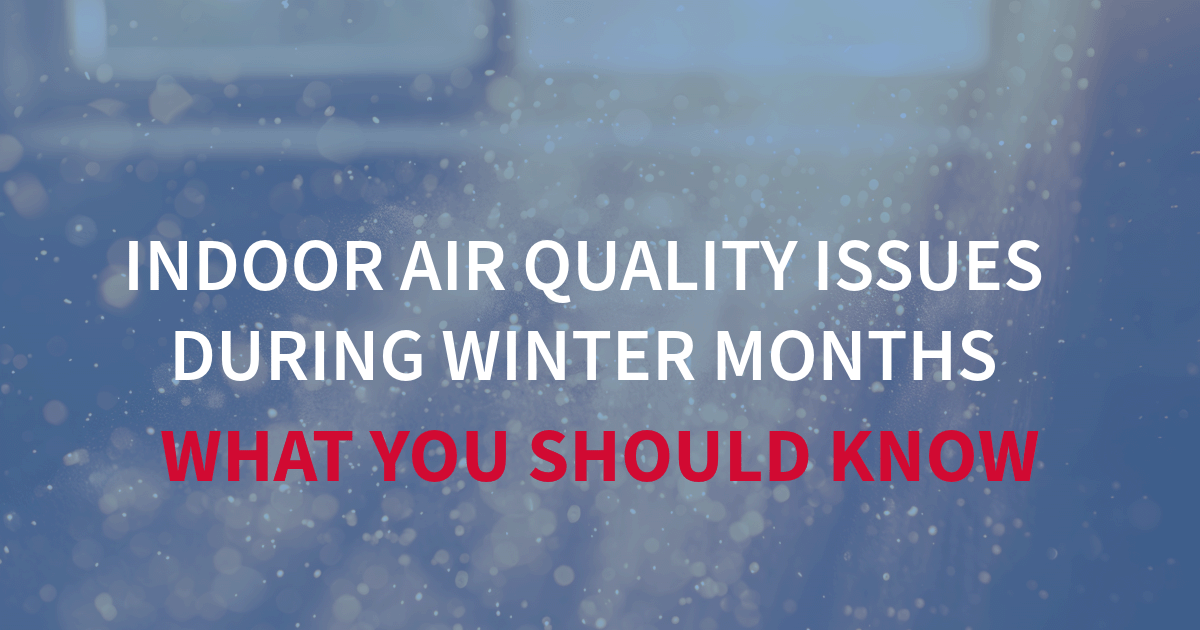The Dangers of Poor Indoor Air Quality During Winter
Indoor air quality (IAQ) is a crucial aspect of our health and well-being, especially during the winter months when we spend more time indoors. Poor IAQ can lead to a range of health issues, from minor irritations to severe respiratory conditions. Understanding the importance of maintaining good indoor air quality and implementing effective strategies can significantly enhance our living environments.
The Impact of Poor Indoor Air Quality
Exposure to indoor air pollutants can cause various health problems, including respiratory diseases, heart disease, and even cancer. Common indoor pollutants encompass a range of substances, such as volatile organic compounds (VOCs) emitted from household products, particulate matter from cooking and heating, and biological contaminants like mold and pet dander. The National Institute of Environmental Health Sciences emphasizes that both short- and long-term exposure to indoor air pollution can lead to significant health issues.
During winter, homes are often sealed to conserve heat, which can inadvertently reduce ventilation and trap pollutants indoors. This environment can exacerbate conditions like asthma and other respiratory ailments. A recent article highlights that nearly everyone worldwide breathes polluted air, underscoring the importance of addressing indoor air quality to lower health risks. (apnews.com) Additionally, a recent article from The Weather Channel emphasizes how winter air quality can impact those with asthma and other respiratory issues, making it essential to prioritize fresh air circulation. (weather.com)
Strategies to Improve Indoor Air Quality
- Enhance Ventilation: Regularly airing out your home by opening windows and doors can help disperse indoor pollutants. Utilizing exhaust fans in kitchens and bathrooms further aids in removing contaminants and moisture.
- Maintain Optimal Humidity Levels: Keeping indoor humidity between 30% and 50% can prevent the growth of mold and dust mites. Using a humidifier during dry winter months can help maintain these levels, but it’s essential to clean the device regularly to prevent bacteria and mold buildup.
- Regular Cleaning: Dust and vacuum your home frequently to reduce allergens and particulate matter. Employing a vacuum cleaner with a HEPA filter ensures more effective removal of pollutants.
- Incorporate Air Purifiers: High-quality air purifiers can filter out a significant portion of indoor air pollutants, including PM2.5 particles, which are known to cause health issues like coughing and bronchitis.
- Choose Low-VOC Products: Opt for paints, cleaning agents, and furnishings labeled as low in volatile organic compounds to minimize the emission of harmful gases into your home.
- Test for Radon: Radon is a colorless, odorless gas that can seep into homes and is a known carcinogen. Testing your home for radon and implementing mitigation measures if necessary is vital for maintaining a healthy indoor environment. (weather.com)
The Role of Attic Air in Indoor Air Quality
QuietCool Whole House Fans can also play a significant role in improving indoor air quality. Even if used for brief periods, these fans rapidly clear out stale indoor air and replace it with fresh outdoor air. This process helps to remove airborne contaminants, odors, and excess humidity, contributing to a healthier home environment. By integrating a QuietCool Whole House Fan into your home’s ventilation strategy, you can enhance air circulation and reduce indoor pollutants efficiently.
Learn more about QuietCool Wholehouse Fans Here>
The Importance of Attic Ventilation
Attics also play a role in IAQ. Poorly ventilated attics can harbor mold, pests, and accumulate dust, all of which can infiltrate living spaces. Ensuring that your attic is well-ventilated and free from moisture is essential. Proper insulation and sealing can prevent unwanted air exchange between the attic and the rest of the home, thereby maintaining better air quality.
Attic Air is Here To Help!
Maintaining good indoor air quality is essential for health and comfort, particularly during the winter months when we spend more time indoors. By implementing the strategies outlined above, you can create a healthier living environment and mitigate the risks associated with indoor air pollutants. Regular attention to ventilation, humidity control, and cleanliness, along with mindful selection of household products, can make a significant difference in the air you breathe.
Call us for a free assessment today at 630.830.3870


